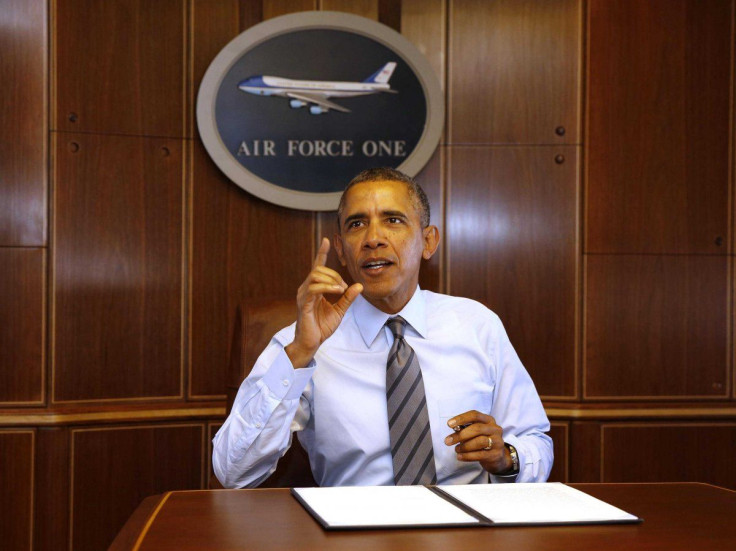Obama 2015 Science Budget Proposal Largely Flat On Research Funding, Scientists Unhappy

President Barack Obama’s $3.9 trillion 2015 budget request to Congress isn’t getting exactly rave reviews from scientists.
The budget plan goes about $56 billion over spending limits set by Congress, so the numbers will likely change before final approval. But it still maintains relatively flat budgets for civilian science research institutions like the U.S. National Institutes of Health and the National Science Foundation. That’s a hard prospect for agencies that are still limping from the across-the-board cuts enacted by the sequester that took effect a year ago.
“I think we did pretty well, compared to what most other areas of government are experiencing,” John Holdren, director of the White House Office of Science and Technology Policy, told Nature. However, he says, “it’s not as much as I would have liked”.
The Obama proposal gives the NIH an extra $211 million over last year’s budget to $30.4 billion. The NSF is getting a 1 percent increase to bring its 2015 proposed budget to $7.3 billion.
"I don't think anyone's going to be happy with a budget that doesn't meet needs and doesn't cover inflation," Michael Lubell of the American Physical Society told Science.
Further breakdowns within institutions are a window into the Obama administration’s priorities for federally-funded science. NASA’s overall budget would drop by about 1 percent under the Obama plan, but cuts would be felt even more keenly at the research level -- science funds are slated to drop by nearly 3.5 percent. Still, maybe the current Ukraine-Russia geopolitical tussle will reinvigorate Congress’ urge to put one over the Russians and pour extra money into space exploration and science -- perhaps at least to make sure we can get to the International Space Station without relying on Russian space capsules.
In the U.S. Department of Energy’s Office of Science (proposed .9 percent increase to $5.1 billion), the wealth would not be shared equally within the department. Advanced computing projects would get a 13.2 percent increase; basic energy science would getting a 3 percent bump. But the nuclear fusion research program would take a big hit -- a 17.6 percent cut this year, amounting to a drop of $88 million from its current budget. The agency may be looking to scale back domestic fusion efforts and focus on the U.S. contribution to an international fusion project located in France, a facility called ITER.
The Association of American Universities, a group of 62 research universities in the U.S. and Canada, noted that the White House has a difficult job working under “unrealistic caps on discretionary spending,” but still strongly criticized the budget proposal.
The president’s budget request “does disappointingly little to close the nation’s innovation deficit,” the organization said in a statement on Tuesday. “When it comes to research, its modest spending increases in a few key research agencies are not sufficient to put this nation on an investment path that can ensure we remain the world’s innovation leader. Indeed, basic research funding declines in this budget.”
© Copyright IBTimes 2024. All rights reserved.





















